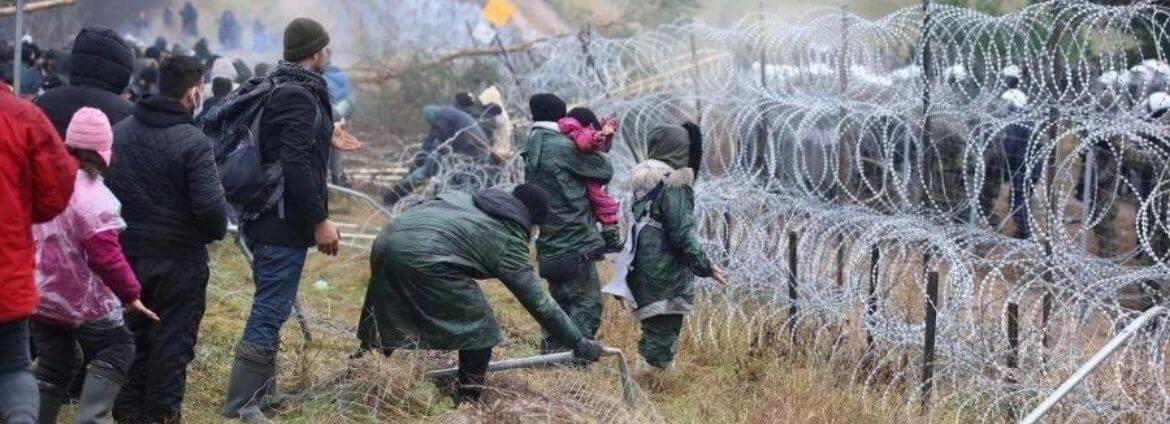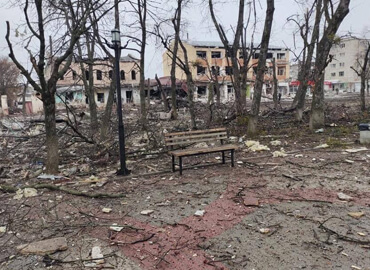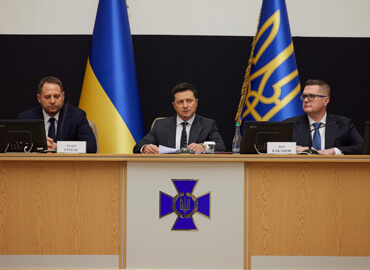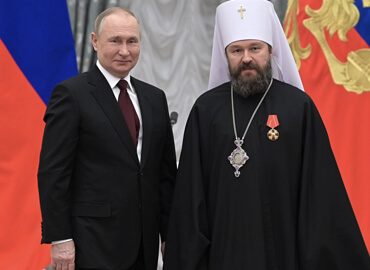The crisis on the Polish-Belarusian border has a humanitarian component, even if there is no doubt that it was inspired or «orchestrated» by Lukashenko. In the Bundestag or the chancellor’s office, everyone understands perfectly well that Lukashenko is engaging in blackmail without any hesitation. Nevertheless, the observer (i.e., the European voter) is shown footage of women and children with bonfires and tents in the field, and «the problem must somehow be solved» – «there are people there.» Given this, Merkel called Putin and then Lukashenko.
This call relates to Merkel’s existential choice, to «German guilt,» to many subtle issues related to Germany’s post-war status in Europe, and to the type of humanitarian responsibility that German society has developed for itself. But this call is unquestionably a political mistake. This call breaks Lukashenko’s isolation. Moreover, it comes without any common decision, without developing a common position on further steps following the call.
Pavel Slyunkin, a former Belarusian diplomat and now an ECFR analyst, commented the following on Yuri Drakokhrust’s program: «Merkel is opening Pandora’s box. If she can unilaterally call Lukashenko, why cannot Austrians or Finns now do the same?» Following this, a statement by Lithuanian President Nauseda appeared stating that it was necessary to talk to Lukashenko. In this way the «front of silence» collapsed.
This immediately shifted the conference in Vienna announced by Austrian Chancellor Schallenberg to a different context. The door is now open for Austrian opportunism as well. The logic of this call was completely at variance with the fact that two days earlier Charles Michel had traveled to Poland to express his full support for actions to protect the borders of the European Union and did not express any intention to initiate a dialogue on a settlement with Lukashenko.
For Kyiv, such a call is a blow and a demonstration of European weakness. This call was made at a time when Lukashenko’s alliance with Putin is being actively discussed as containing the threat of a new war in the region. Can Lukashenko, for his own interests, provoke a conflict not only on the border with Poland, but also in Ukraine? Of course! Nobody even doubts this.
Where is the political gain from this call? There is none even for Germany. Because the call was made on November 15, the day when Belarusian security forces played a provocative message that there would be buses and there would be a corridor to Germany. But this did not happen, and it was not planned. Merkel’s call only awakens vain expectations among people at the border. And, of course, it allows Minsk and Moscow to simulate their diplomatic victory, maintaining that «we leaned on Europe to enter talks,» and to continue the one-sided game of pumping up the crisis, maintaining that new people willing to cross the border are gathering in Minsk and that the logistics center on the border is being used to create conditions for the long-term maintenance of the camp. This call is also a heavy blow to that significant part of Belarusian society awaiting Lukashenko’s departure both inside the country and in exile.
The catastrophic nature of this step also lies in the fact that such a one-sided break in isolation presupposes a clear understanding of the next step. But no one has any idea. Everyone has a clear understanding that the Lukashenko-Putin alliance will not end. Moscow and Minsk are jointly creating a large-scale hotbed of conflict in the region. There are no analysts in Europe who have not already written that the intention of their actions is to destabilize. And if this is the case, what should follow the call from Merkel as a political step? The «fifth package of sanctions» is now too weak.
There are three strategic options under discussion
First is to negotiate with Lukashenko, recognize him completely, and negotiate the lifting of sanctions provided there are early elections. It is a weak scenario because Lukashenko will either not agree or deceive. However, as a measure of «freezing» the problem this scenario is better than just a complete defeat for the European Union.
Second is to make a decision that balances the situation after the call. The «fifth package of sanctions» is too weak to be balanced. A strong decision would involve starting the process of creating an International Tribunal and putting Lukashenko into the category of «Yugoslavian criminals.» This, of course, will completely close the prospect of any further negotiations with Lukashenko. But it would create a clear basis for the interaction of European governments on the Belarusian issue.
Third is to tell yourself that an escalation in the east with an alliance between Lukashenko and Putin is inevitable in any diplomatic action and you just need to prepare for war. This means that a «wall must be built»; that is, create new border fortifications and separation lines, strengthen control, and strengthen defensive capabilities. This means leaving the societies of Russia and Belarus on their own under dictatorships. But at the same time, it would lessen the degree of danger for all countries of Central Europe and Ukraine.
Clearly, Lukashenko is playing this game with the support of Putin and there are no good scenarios. You can only choose from among the bad ones. But if you do not do this now and just skip a move, then this will push the whole situation towards the defeat of Europe by two dictatorships.
Alexander Morozov – iSANS analyst, political scientist, philosopher, and lecturer at Charles University, Prague.
The article was prepared by iSANS specially for Reform.by.
Материал доступен на русском языке: После звонка Меркель











